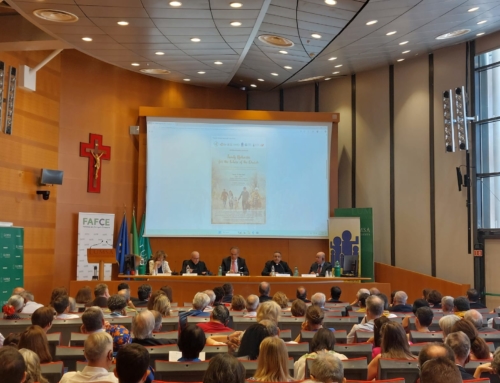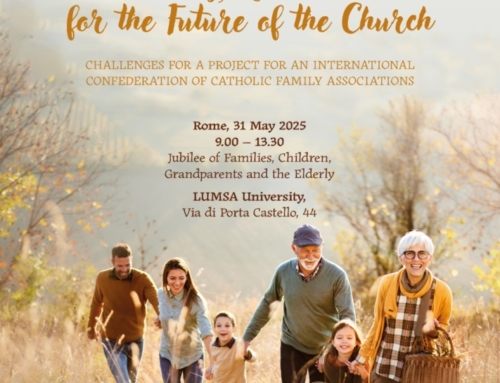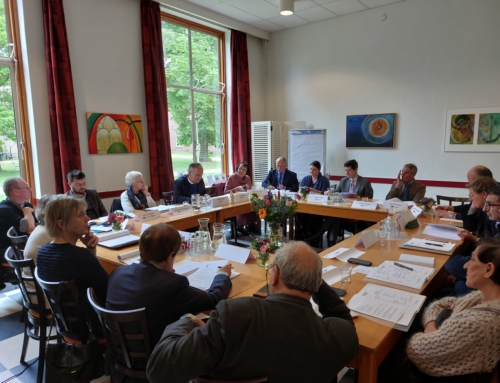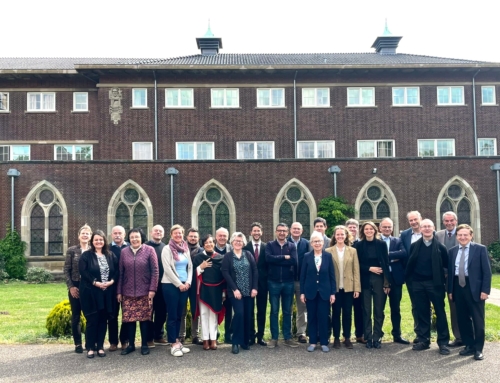FAFCE Board Resolution
Families for Sustainable and Integral Development
Strasbourg, 26 October 2021
FAFCE invites European institutions and national governments to consider the EU demographic crisis with the same attention given to the digital and green transitions. It also invites decision-makers to recognise the family as a main driver of recovery in all its aspects, i.e. socially, economically and environmentally. Public policies will only be sustainable if families are recognised and valued as a resource of primary importance, resulting in a special attention given to the freedom of families to pursue, in the best possible conditions and without obstacles, their joyful responsibility to care for the integral development of their children and overall of their community, in a positive dialogue between generations.
Recalling the appeal of the Laudato Si’ Encyclical Letter: “The urgent challenge to protect our common home includes a concern to bring the whole human family together to seek a sustainable and integral development”;[1]
Recalling the key role of families highlighted by Pope Francis in the Fratelli Tutti Encyclical Letter, “I think first of families, called to a primary and vital mission of education. Families are the first place where the values of love and fraternity, togetherness and sharing, concern and care for others are lived out and handed on”;[2]
Recalling that human life and children are the most precious gift to humankind;
Recalling that parenthood is a joyful responsibility, as the care for children even with challenges is a source of profound happiness;
Therefore FAFCE:
- Reminds that the fact of having children should never be considered as a lack of responsibility towards the Creation or its natural resources. The concept of “environmental footprint” cannot be applied to children, since they are an indispensable resource for the future. Instead, consumerism and individualism should be addressed, looking at families as the best example of the optimisation of resources involving large economies of scale;
- Recalls that the current world demographic trend of very low and ultra-low fertility, with half of the world population living in countries where the fertility is below 2.1 births per woman.;[3]
- Expresses its concerns about the fertility rate in Europe of 1,53 children per women in 2019;[4] recalling the disastrous impact of the demographic unbalance on social and pension systems, labour market dynamism, economic sustainability and social cohesion, as stressed by the recent joint Reflection Document on “Family: The Missing Ingredient In Rural Revitalisation”;[5]
- Stresses that couples face many economic, social and cultural obstacles in their wish to start a family and to have children; regrets that couples in Europe have overall one child less that they would want to;[6]
- Invites all to recognise and consider the grandparents as an integral part of the family;
- Notes that the promotion of a culture of life, where children are welcomed, does not seek to impose on parents to have more children, but rather it seeks to allow the freedom and the conditions for parents to have the number of children they want;
- Calls for effective demographic and family policies to generate a demographic Spring, taking the example of the national good practices, as highlighted by the FAFCE Dialogues on demographic challenges;[7] stresses the need for tax justice, as a fair award for the contribution of families to our communities;
- Drawing more attention on the difficult situation of working parents, especially mothers, whose unpaid work for the common good is often overlooked, up to the point that they even face situation of discrimination, as highlighted by the FAFCE-NWFE White Paper on “Protecting Women from Maternal Mobbing”;[8]
- Calls to respect the subsidiarity principle when it comes to the primary role and responsibility of parents in the education of their children, in complementarity with schools, as stressed during the FAFCE and UNAEC-Europe joint Webinar on “Family and Education: Seeds of Hope”;[9] and it regrets that some national policies fail to respect the prior right of parents “to choose the kind of education that shall be given to their children”;[10] it stresses the need to create a broad educational alliance between the different actors of co-education in our communities, through a Global Compact on education, restoring the dialogue with family associations, recognised as intermediary bodies of the society.[11]
[1] Encyclical Letter Laudato Si’ of the Holy Father Francis on care for our common home, (24 May 2015), paragraph 13. Available at https://www.vatican.va/content/francesco/en/encyclicals/documents/papa-francesco_20150524_enciclica-laudato-si.html
[2] Encyclical Letter Fratelli Tutti of the Holy Father Francis on fraternity and social friendship (3 October 2020), paragraph 114. Available at https://www.vatican.va/content/francesco/en/encyclicals/documents/papa-francesco_20201003_enciclica-fratelli-tutti.html
[3] United Nation Population Fund, “Low fertility: A review of the determinants” (July 2019). Available at https://www.unfpa.org/sites/default/files/pub-pdf/FINAL_Determinants_of_low_fertility.pdf
[4] Eurostat, “Fertility statistics” (March 2021). Available at https://ec.europa.eu/eurostat/statistics-explained/index.php?title=Fertility_statistics
[5] FAFCE, « The Family: The Missing Ingredient in the Revitalisation of the EU’s Rural Areas
« (22 July 2021). Available at https://www.fafce.org/press-release-fafce-fundacion-madrina-publish-a-report-on-family-the-missing-ingredient-in-rural-revitalisation/
[6] Cf. for example: FAFCE, “Decreasing birth rates in Europe: is it really the choice of parents?” (10 March 2021). Available at https://www.fafce.org/decreasing-birth-rates-in-europe-is-it-really-the-choice-of-parents/#_ftn6
[7] FAFCE, list of FAFCE Dialogues from December 2020 to September 2021. Available at https://www.fafce.org/?s=FAFCE+Dialogue
[8] New Women for Europe, “Protecting women from maternal mobbing” (11 February 2021). Available at https://www.fafce.org/fafce-nwfe-white-paper-on-protecting-women-from-maternal-mobbing/
[9] FAFCE, “FAFCE and UNAEC-Europe Jointly Host Webinar on “Family and Education: Seeds of Hope” (4 May 2021). Available at https://www.fafce.org/fafce-and-unaec-europe-jointly-host-webinar-on-family-and-education-seeds-of-hope/
[10] Universal Declaration of Human Rights, 26.3
[11] Message of His Holiness Pope Francis for the Launch of the Global Compact on Education (19 September 2021). Available at https://www.educationglobalcompact.org/en/the-invite-of-pope-francis/









